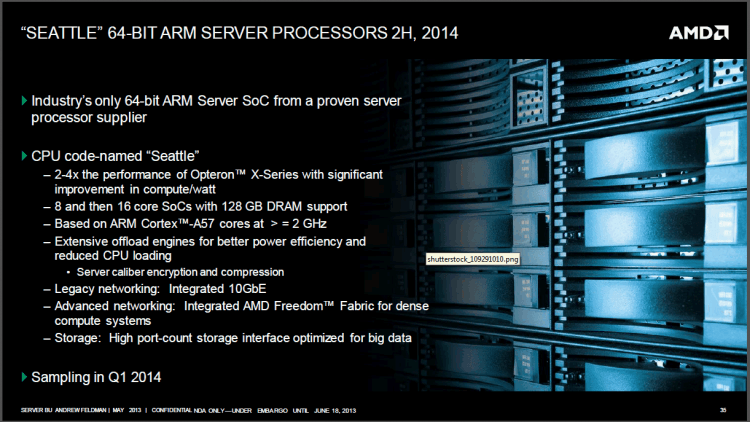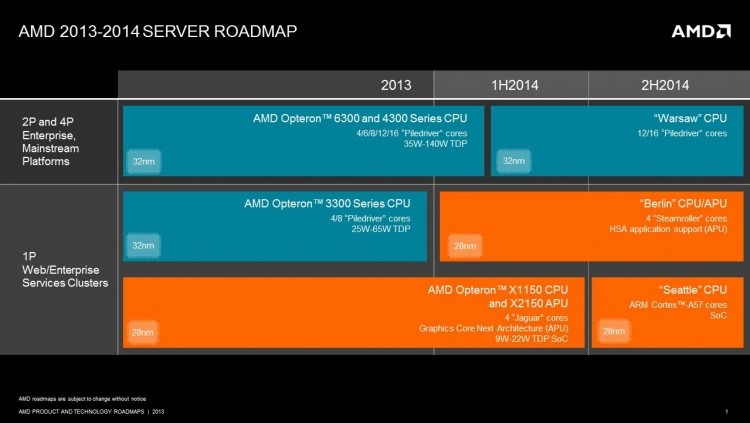Late last year, following months of speculation, AMD finally revealed plans to build low-power server chips based on the ARM architecture. The move marked an interesting shift for the company in its attempt to challenge Intel's dominance of the steadily growing data center market. AMD's first 64-bit ARM-based chip isn't expected to arrive until sometime in the second half of 2014 but this week the company offered up a few early details.
Codenamed Seattle, the upcoming server part will be built around ARM's 64-bit Cortex-A57 and a 28nm manufacturing process. It will be made available in an 8-core configuration initially, with a 16-core variant to follow later, and is expected to reach clock speeds of at least 2GHz. Performance-wise, AMD says Seattle should be between 2 and 4 times faster than its Opteron X-Series with improvements in compute per watt.

Other features mentioned in AMD's presentation include 128GB DRAM support, extensive offload engines for better power efficiency and reduced CPU loading, server calibre encryption and compression, and legacy networking including integrated 10GbE. This will also be the first AMD processor to utilize its Freedom Fabric technology for high-density low-power servers, acquired from SeaMicro last year.

AMD is confident ARM designs will win out in the long run and expects the architecture to have double digit market share by 2016. That doesn't mean they are abandoning their x86 roots anytime soon, however. The company also plans release the "Berlin" and "Warsaw" x86 processor lines in the first half of 2014.
It'll be interesting to see how this move plays out for AMD in the server market and if / when any of it will translate to other product lines. After all, only a couple of months ago the company hinted at an eventual ARM-Radeon combo for the embedded market, it's not unreasonable to think the same is possible for tablets and phones. That, however, is merely conjecture at this point and if anything such a move might still be a bit far off.